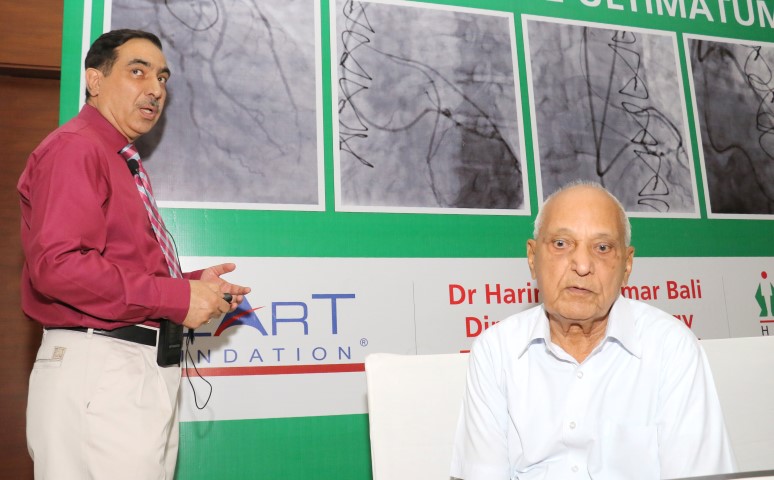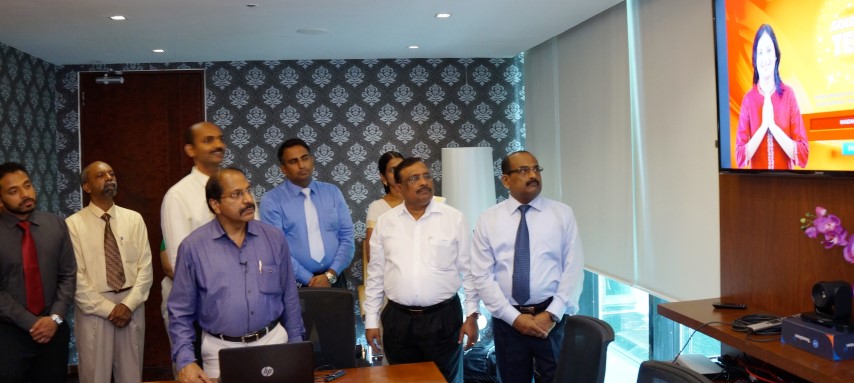NewZNew (Chandigarh) : Renowned interventional cardiologist Dr H K Bali (Director – Cardiology, Fortis Hospital Mohali) recently performed a very complex intervention in a post-bypass patient. Dr Bali was invited to present this complex case at a prestigious international conference – Transcatheter Therapeutics Asia – Pacific (TCTAP), held at South Korea, last month.
Sharing the case details, Dr Bali said, “Our 82-year-old patient underwent a bypass surgery for critical blocks in all three vessels of his heart in 2011. However, he started getting chest pain and breathlessness on mild exertion recently,” said Dr Bali.
We did an urgent angiography, which revealed critical total occlusion of the bypass graft supplying the major territory of the heart. “Treating this critical block was extremely difficult. The only route to the block was through a difficult retrograde passage via the main heart vessel of the patient, which was extremely tortuous and extensively calcified or blocked,” said Dr Bali.
Dr Bali and his team of surgeons conducted angioplasty for this critical blockade and successfully relieved the obstruction making the procedure one of its own kind in the World to be treated using angioplasty and stenting.

“We used two medicated stents to treat the complex block. Very innovative technique was used to treat this extremely complex disease,” said Dr Bali, adding that the procedure was conducted in 30 minutes and done under local anesthesia. Patient Nand Lal (83 years old), a resident of Jalandhar, is absolutely fine and has resumed all his activities normally.
“This new surgery procedure reiterates the need to have advanced surgical procedures to de-clog such congestions, especially in the elderly post-bypass patients,” he said. Dr. Bali concluded by saying that patients post-bypass surgery have vein grafts, which tend to get blocked with higher frequency rates as the years go past. Managing such a sub-set of patients with maximum medical management often yields no results. Intervening in such complex lesions is an arduous task and requires expertise. Young interventional cardiologists must be trained to manage such complex lesions in these patients, as their quality of life and sometimes, life, may depend on these timely interventions.





